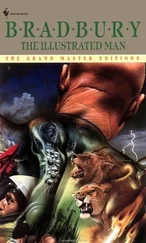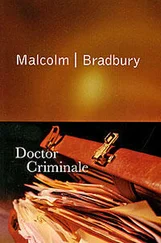Malcolm Bradbury - The History Man
Здесь есть возможность читать онлайн «Malcolm Bradbury - The History Man» весь текст электронной книги совершенно бесплатно (целиком полную версию без сокращений). В некоторых случаях можно слушать аудио, скачать через торрент в формате fb2 и присутствует краткое содержание. Жанр: Современная проза, на английском языке. Описание произведения, (предисловие) а так же отзывы посетителей доступны на портале библиотеки ЛибКат.
- Название:The History Man
- Автор:
- Жанр:
- Год:неизвестен
- ISBN:нет данных
- Рейтинг книги:3 / 5. Голосов: 1
-
Избранное:Добавить в избранное
- Отзывы:
-
Ваша оценка:
- 60
- 1
- 2
- 3
- 4
- 5
The History Man: краткое содержание, описание и аннотация
Предлагаем к чтению аннотацию, описание, краткое содержание или предисловие (зависит от того, что написал сам автор книги «The History Man»). Если вы не нашли необходимую информацию о книге — напишите в комментариях, мы постараемся отыскать её.
The History Man — читать онлайн бесплатно полную книгу (весь текст) целиком
Ниже представлен текст книги, разбитый по страницам. Система сохранения места последней прочитанной страницы, позволяет с удобством читать онлайн бесплатно книгу «The History Man», без необходимости каждый раз заново искать на чём Вы остановились. Поставьте закладку, и сможете в любой момент перейти на страницу, на которой закончили чтение.
Интервал:
Закладка:
'George,' says Michael, 'he's starting discussion.'
'Has anyone seen him?' asks Howard. 'He's always late,' says Hashmi. 'His congenital disease,' says Howard, 'just as it's mine to eliminate him from memory. I wonder what that signifies.' The class laughs. Howard says, 'Did he show up this term?'
'Well,' says Merion, 'he's not the kind of person we associate with.'
'He'll come,' says Michael Bennard, 'he always comes.'
'We could start without him,' says Merion, 'I expect we've all read the stuff.'
'No,' says Howard, 'I really think we ought to hear George exercise himself on the topic of social change. It should be quite an occasion.'
At this moment the door is jogged, and then it opens. In the aperture stands a student; he carries a large stack of books,. which reach from the level of his crotch to just under his chin. His chin holds the pile unevenly steady. From two of the fingers of his hands, which are clasped underneath the books, there dangles a shiny new briefcase. The established circle inspects the stranger, who appears confident. 'I'm sorry I'm late, sir,' he says, 'I've been working all night on my paper. Just this minute finished.'
'Get a chair,' says Howard, 'bring it into the circle.'
'Hold my books,' says the student, who is very neat, to Merion; he brings a chair, inserts it into the group, causing much scraping of the floor; 'Is that all right, sir?' he asks, 'can everyone see my face from this position?'
'Enough of it,' says Howard. 'Look, I asked you to prepare this class over the summer, not leave it until last night.'
'I wanted to be fresh,' says the student. 'Besides, I was shooting in the summer.'
'Who were you shooting?' asks Howard. 'I was shooting film in Scotland,' says the student. 'Bag any?' asks Michael Bennard. 'Come on,' says Howard, 'I want to get started. Theories of social change.'
'If you could just give me half a minute,' says the student, 'I just have to sort these books out. Would you mind if I had a table? There are some outside in the corridor.'
'We've just taken them out,' says Howard, 'and what is all this stuff, George?' The student has begun to arrange the large pile of books around his chair; each of the books has little bits of toilet paper protruding from its pages, no doubt to mark significant references. 'I've tried to be as scholarly as possible,' says the student, 'I wouldn't want to go off at a tangent with a crucial issue like this. Social change, sir.'
'It doesn't seem necessary to me,' says Howard, 'but we'll start off by giving you the benefit of the doubt. Now ate you ready?'
'One more tiny moment?' says the student; he reaches into his shiny leather briefcase, and brings forth a blue cardboard file. From the file he removes a fat document, written in very cramped, close handwriting, places it on his knee, and looks up. 'Ready to go now, sir,' he says.
The student's name is George Carmody; he has the reputation of being appalling. The group stare at him, question whether they can contain him; their tolerance is not easily strained, but something in Carmody strains it. They have been meeting together weekly, now, for two whole years; they have shared many experiences, been through dark purgatories of insight, together; they have acquired a cohesion, a closeness. They have changed together, passing through those utter transformations of personality which at Watermouth are an ongoing spiritual necessity: students here will suddenly acquire new modes of being, so that not only does dress, hairstyle, appearance alter utterly, but somehow the entire physiology and physicality. A neat, respectful public schoolboy has become irritable, proletarian Michael Bennard; a frail, bright teenager has become dark-eyed Felicity Phee. But to these transactions of spirit and belief Carmody has remained a stranger; he has changed most, and changed by not changing at all. Here he sits, in his chair, looking beamingly around; as he does so, he shines forth unreality. He is a glimpse from another era; a kind of historical offence. In the era of hair, his face is perfectly clean-shaven, so shaven that the fuzz of peach-hair on his upper features looks gross against the raw epidermis on his cheeks and chin, where the razor has been. The razor has also been round the back of his neck, to give him a close, neat haircut. From some mysterious source, unknown and in any case alien to all other students, he has managed to acquire a university blazer, with a badge, and a university tie; these he wears with a white shirt, and a pair of pressed grey flannels. His shoes are brightly polished; so, as if to match, is his briefcase. He is an item, preserved in some extraordinary historical pickle, from the nineteen-fifties or before; he comes out of some strange fold in time. He has always been like this, and at first his style was a credit; wasn't it just a mock-style to go with all the other mock-styles in the social parody? But this is the third year; he has been out of sight for months, and here he is again, and he has renewed the commitment; the terrible truth seems clear. It is no joke; Carmody wants to be what he says he is.
Now he looks at Howard, with bright eyes; he says, 'You asked me to look at theories about the workings of social change in the works of Mill, Marx and Weber. I hope this is a justifiable interpretation.' Howard looks at the intolerable figure; he says, 'I hope it is.' Carmody now dips his head, and draws the fat document from its folder; he begins to read the first sentence from the handwritten page. 'Wait a minute,' says Howard, 'are you proposing to read all that?'
'Yes, sir,' says Carmody. 'I'm not "sir",' says Howard, 'I don't want your deference. Now, what did I ask you to do?'
'You asked me to look at Mill, Marx and Weber, and make a report,' says Carmody. 'I asked you to go away and read their works, over the vacation,' says Howard, 'and then to make a spontaneous verbal statement to this class, summing up your impressions. I didn't ask you to produce a written paper, and then sit here with your head hanging over it, presenting formalized and finished thoughts. What kind of group experience is that?'
'You did say that, sir,' says Carmody, 'but I thought I could do something more developed. I've put in so much time on this.'
'I don't want it developed,' says Howard, 'I want development to occur in discussion.'
'I'm sorry, Dr Kirk,' says Carmody, 'but I felt this was better. I mean, I felt I could sum this stuff up and get it out of the way so we didn't need to spend a lot of time going over and over it.'
'I want us to go over it,' said Howard, 'it's called discussion. Now put that script away, take it outside, and then tell us what impressions you've got from the reading I asked you to do.'
'You think I haven't done the reading, sir?' asks Carmody. 'I don't think that at all,' says Howard, 'I think you've made a heavy, anal job of this, because you're a heavy, anal type, and I want you to risk your mind in the insecurity of discussion.'
'Well, I'm sorry, sir, but I can't,' says Carmody. 'Of course you can,' says Howard. 'No,' says Carmody, 'I just don't think like that, work like that. I am an anal type, you're right. It's not all easy. If you like, I'll go over to Counselling Service and get them to write me a note to that effect. They know I can't think like that. They know I have a linear mind, Dr Kirk, I'm afraid.'
'A linear mind,' says Howard, 'is that what they told you?'
'Yes, sir,' says Carmody, 'it's a mental condition.'
'I'm sure it is,' says Howard, 'I'm trying to cure it.'
'Oh, they wouldn't like that, Dr Kirk,' says Carmody, 'I'm under treatment for it. Please let me read my paper.'
'Well,' says Howard, 'it's up to the rest of the class. I'm not going to accept anything like this from them. But it's a democratic class. We'll vote on it, and you'll have to accept their decision. Right, Mr Carmody wants to submit a written paper; those who are prepared to hear it?'
Читать дальшеИнтервал:
Закладка:
Похожие книги на «The History Man»
Представляем Вашему вниманию похожие книги на «The History Man» списком для выбора. Мы отобрали схожую по названию и смыслу литературу в надежде предоставить читателям больше вариантов отыскать новые, интересные, ещё непрочитанные произведения.
Обсуждение, отзывы о книге «The History Man» и просто собственные мнения читателей. Оставьте ваши комментарии, напишите, что Вы думаете о произведении, его смысле или главных героях. Укажите что конкретно понравилось, а что нет, и почему Вы так считаете.











